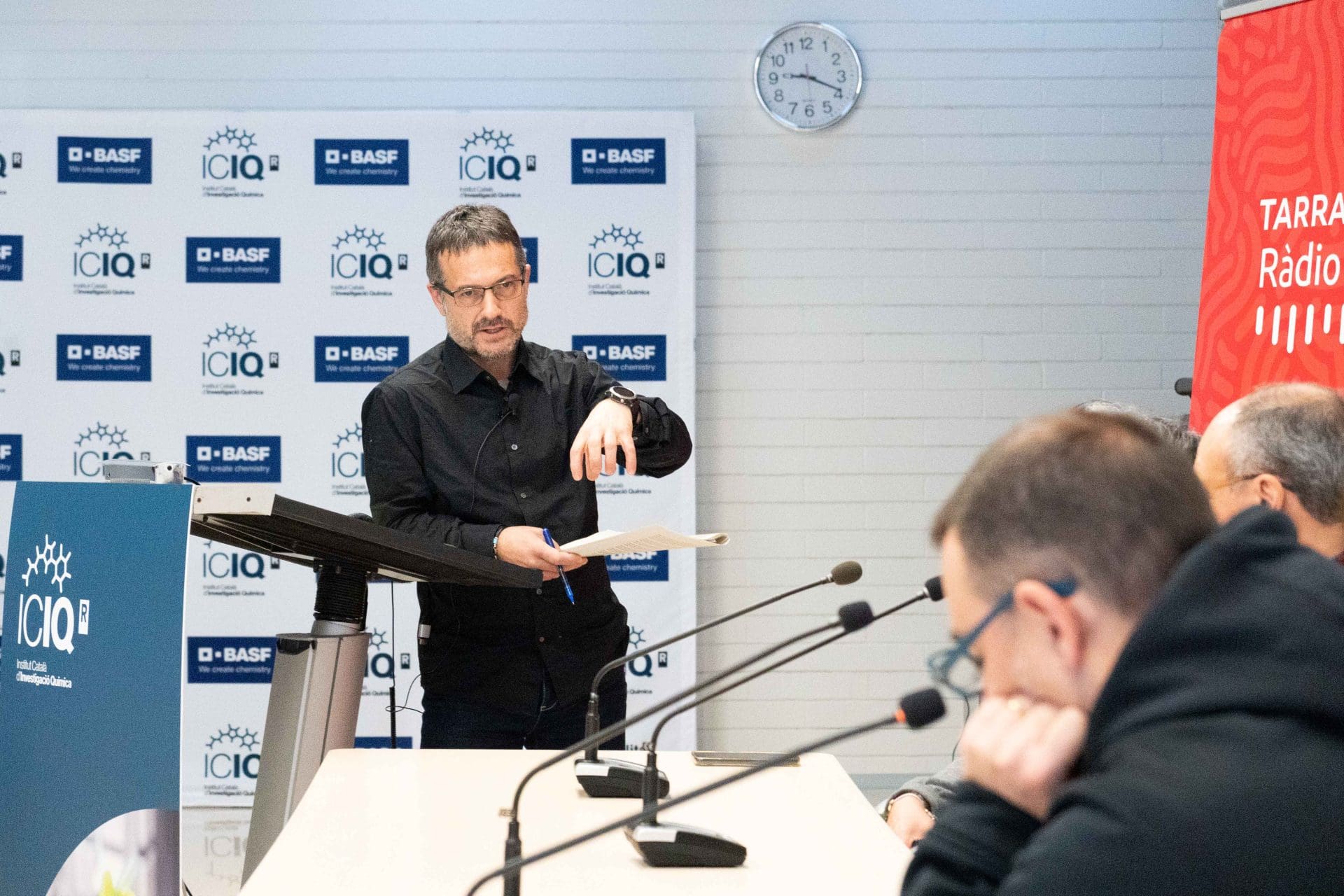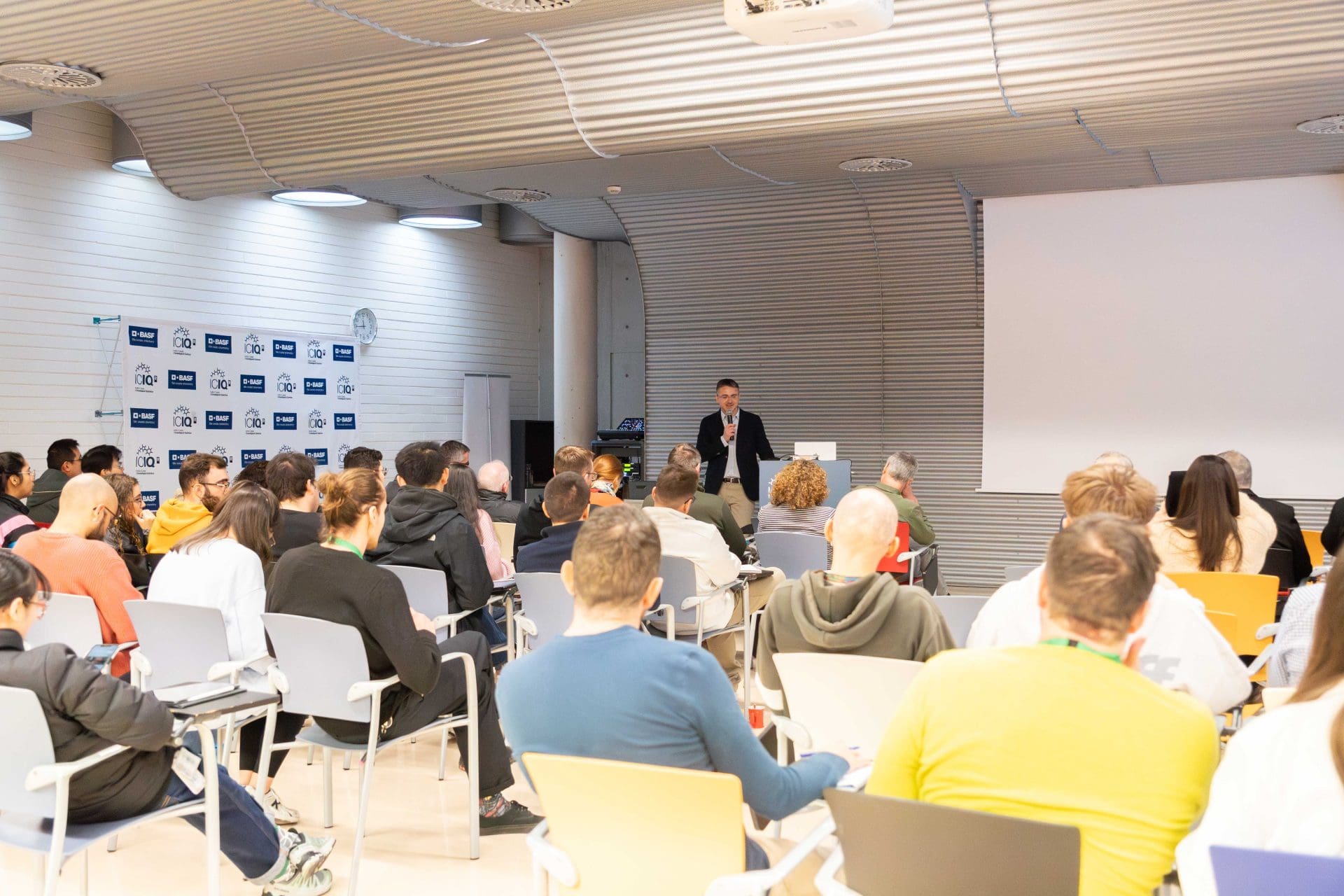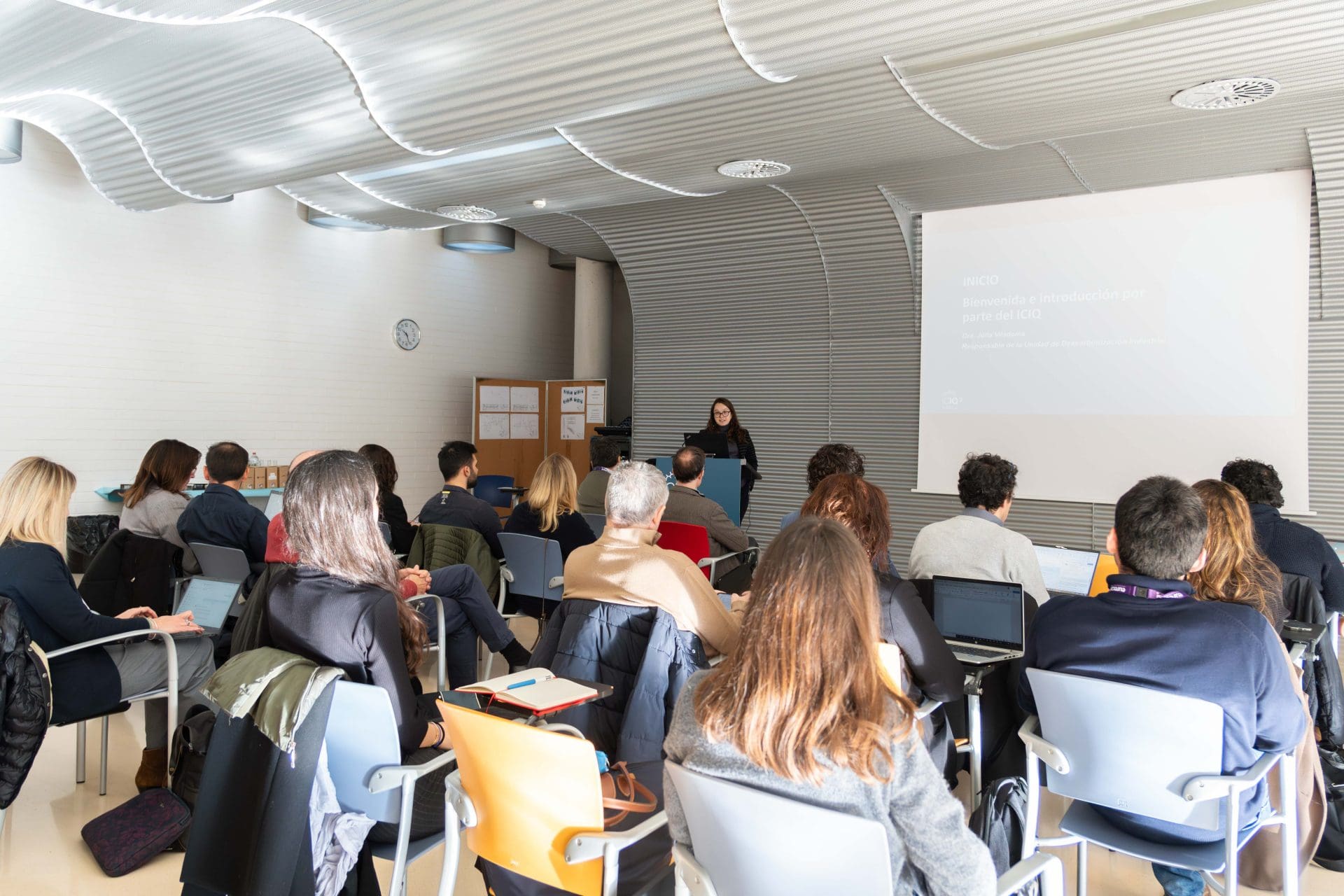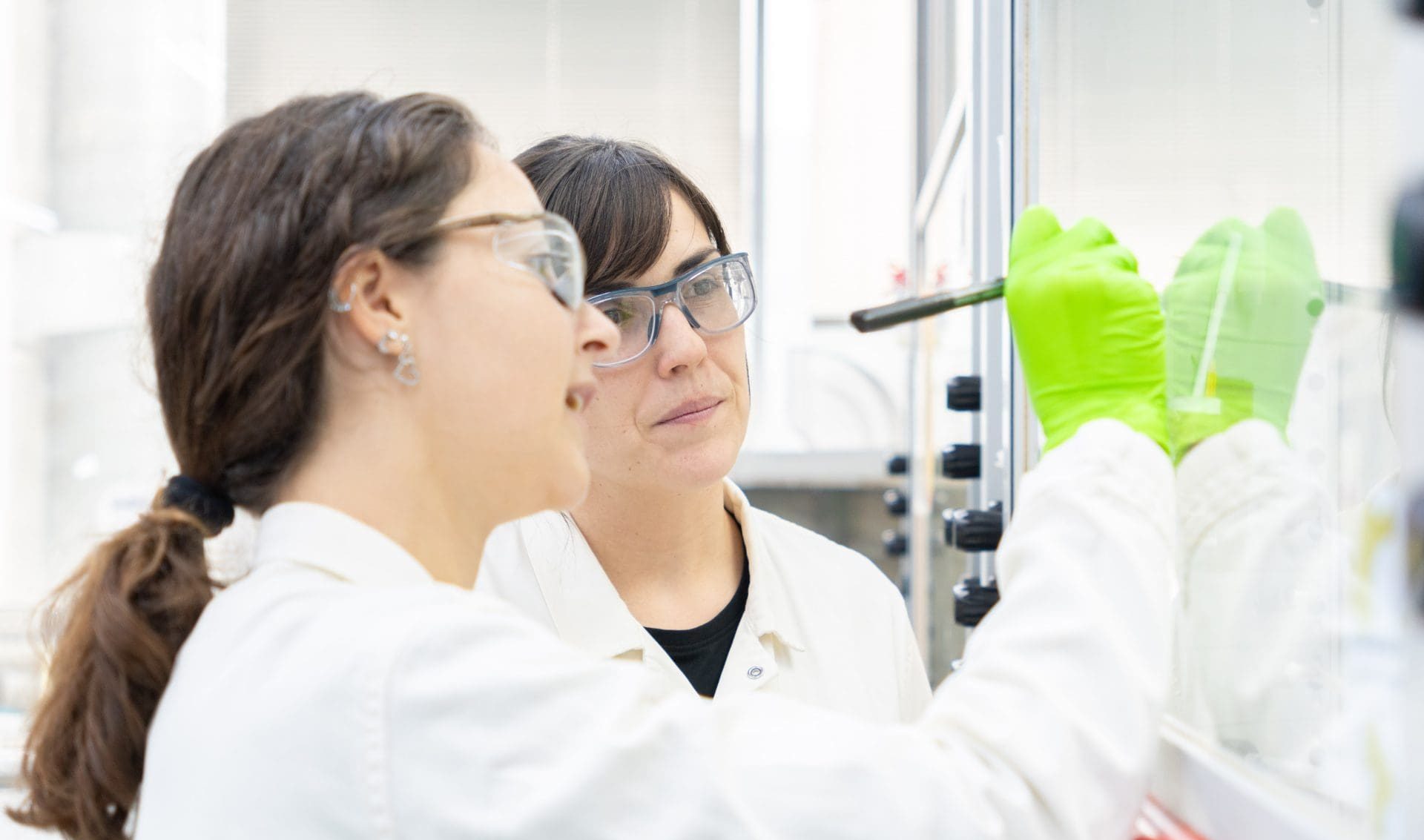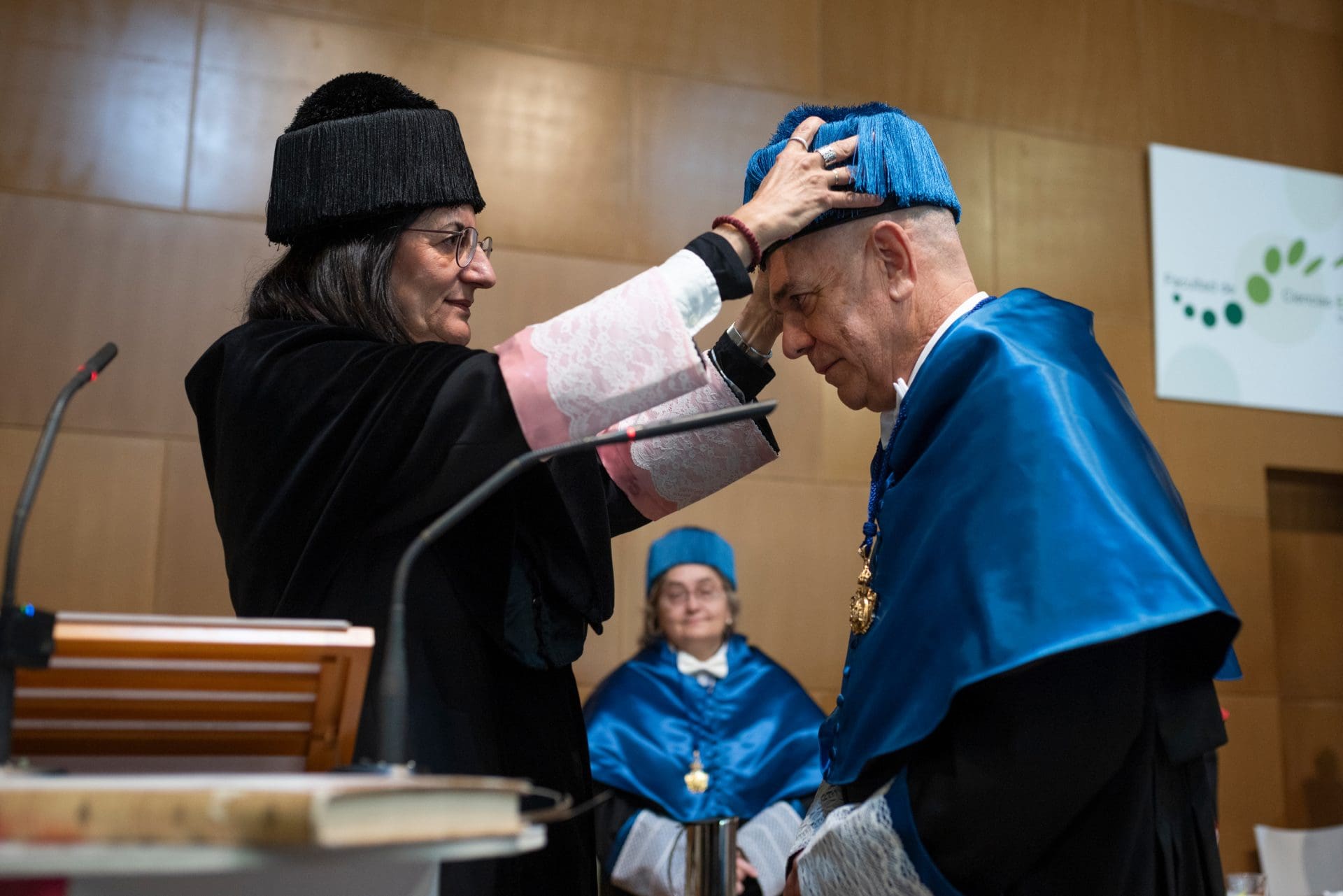Prof. Marcos García Suero awarded with an ERC Proof of Concept grant
This prestigious grant offers a lump sum of 150,000 € for a period of 18 months to advancing drug discovery
Prof. Marcos García Suero, ICREA Professor and ICIQ group leader has been awarded a European Research Council (ERC) with Proof of Concept grant for the development of the project “New chemical warheads for covalent drug discovery (Cyclo-warhead)”. The grants – worth €150,000 – will help Prof. Suero to bridge the gap between the discoveries stemming from his frontier research and the practical application of the findings, including early phases of their commercialisation.
Over the past two decades the pharmaceutical industry has witnessed an exponential growth in approved covalent drugs. In this type of drugs, we find aspirin (as the first covalent drug), penicillin and omeprazole, among others. Covalent drugs block protein function by forming a specific bond between the ligand and target protein. These drugs offer the added advantage of terminally inactivating the target protein, which translates in high potency, extended duration of action and less-frequent dosing.
Among the covalent drugs on the market, more than 25% are used in oncology. Key examples in this therapeutic area include the Bruton’s tyrosine kinase (BTK) inhibitor Ibrutinib, with sales totalling US$8.43 billion, and Sotorasib – an inhibitor of mutant KRAS(G12C), a GTPase that resisted decades of drug discovery efforts. The latter example clearly underlines that potent inhibition through covalent modification can enable targeting of traditionally ‘undruggable’ proteins. Moreover, covalent drugs have also been developed to treat cardiovascular disorders, as well as CNS (Central Nervous System), infectious and gastrointestinal diseases.
I am honoured to receive this recognition in such a competitive programme, which will help to translate fundamental research funded by my ERC CoG. The aim of this proposal is to assess the viability of a new chemical warhead in the discovery of novel kinase inhibitors.
Prof. Marcos García Suero
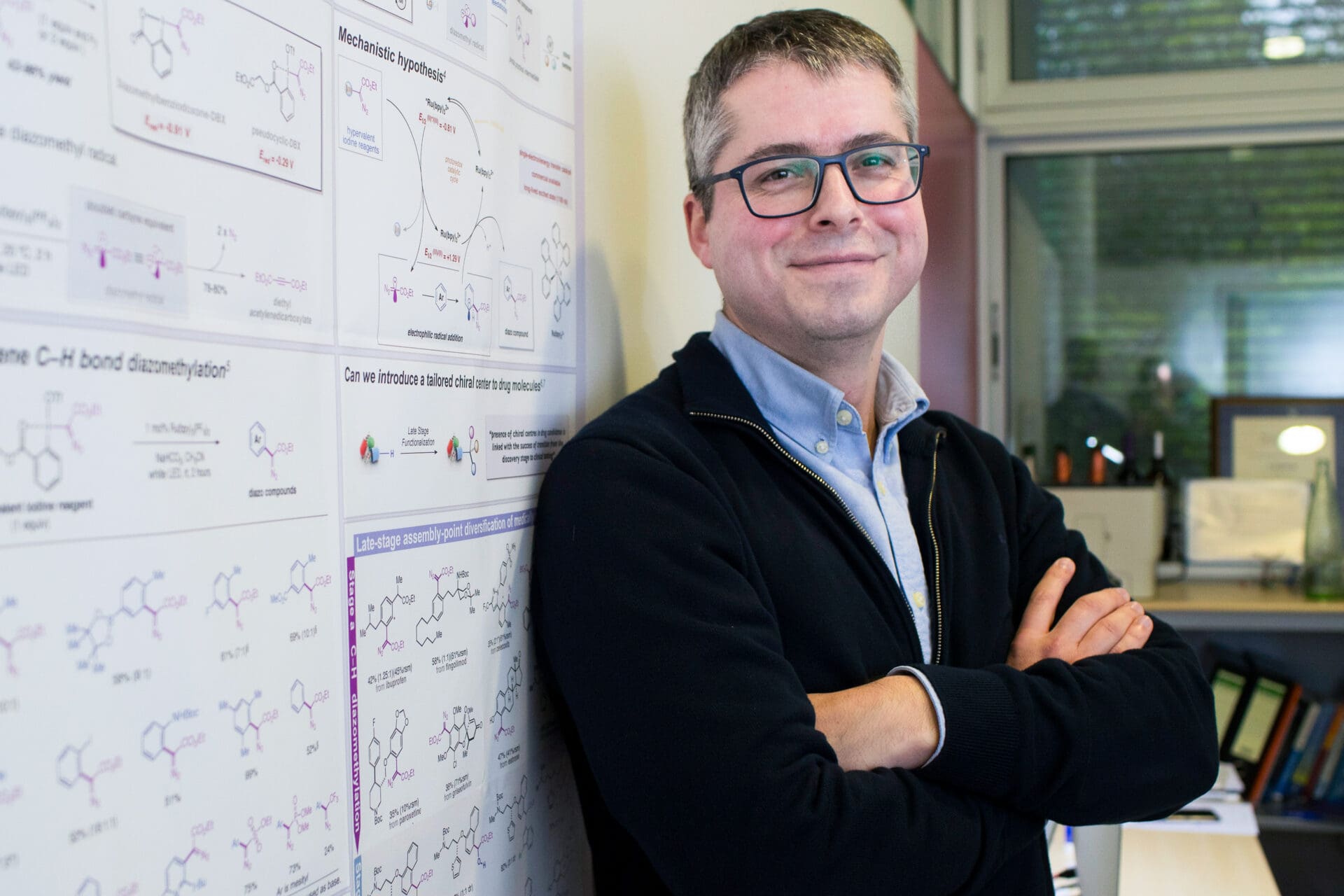
Covalent drugs incorporate warheads, a mild electrophilic reactive functional group, that forms covalent bonds in a reversible or irreversible manner with nucleophilic aminoacid residues (cysteine, serine, threonine, tyrosine and lysine, among others) near a binding site of the target protein. Currently, a major need in the field is the discovery and development of these new covalent reactive moieties.
This is the second ERC grant Prof. Suero has obtained, as in December 2019, the ERC awarded him with a 2M€ ERC Consolidator Grant to develop the project “New Carbon Reactivity Rules for Molecular Editing” (CARBYNE).
About Prof. Marcos García Suero
Prof. Marcos García Suero was born in Noreña (Asturias) in 1981. He graduated in Chemistry from the Universidad de Oviedo in 2003 and introduced to organometallic chemistry in the laboratory of Prof. José Gimeno and Prof. Pilar Gamasa. In February 2009 he obtained his PhD degree at the Institute of Organometallic Chemistry Enrique Moles (Universidad de Oviedo), where he worked under the direction of Prof. José Barluenga and Prof. Josefa Flórez on Fischer carbene chemistry.
During the summer of 2005 he joined the laboratory of Prof. Andrew Myers at Harvard University working on the synthesis of novel tetracycline antibiotics as a PhD visiting student. In May 2010 he moved to the University of Cambridge to work with Professor Matthew Gaunt on copper(III) catalysis and methionine bioconjugation as a Postdoctoral Marie Curie Fellow and in October 2014 he started his independent research career at the Institute of Chemical Research of Catalonia (ICIQ) within the CELLEX-ICIQ starting career programme.
In December 2019, the ERC awarded Prof. Marcos García Suero with the ERC Consolidator Grant. In June 2020, after being evaluated by ICIQ’s Scientific Advisory Board, Prof. Suero got tenure and was promoted to Senior Group Leader. And in 2023, he was awarded with an ICREA Professorship and with the R3 certificate from the Agencia Estatal de Investigación.
About the ERC
The European Research Council (ERC), set up by the European Union in 2007, is the premier European funding organisation for excellent frontier research. It funds creative researchers of any nationality and age, to run projects based across Europe. The ERC offers four core grant schemes: Starting Grants, Consolidator Grants, Advanced Grants and Synergy Grants. With its additional Proof of Concept Grant scheme, the ERC helps grantees to bridge the gap between their pioneering research and early phases of its commercialisation. The ERC is led by an independent governing body, the Scientific Council. Since November 2021, Maria Leptin is the President of the ERC. The overall ERC budget from 2021 to 2027 is more than €16 billion, as part of the Horizon Europe programme, under the responsibility of European Commissioner for Innovation, Research, Culture, Education and Youth, Iliana Ivanova.
The ERC has announced the award of 100 new Proof of Concept Grants, in the first round of the 2024 competition. This latest batch of grants includes the 2000th project to receive Proof of Concept funding since the scheme was introduced in 2011. Astrophysicist Nanda Rea, based at the Consejo Superior de Investigaciones Científicas (CSIC) in Spain, will manage this milestone project.
Related news

Let's create a brighter future
Join our team to work with renowned researchers, tackle groundbreaking
projects and contribute to meaningful scientific advancements







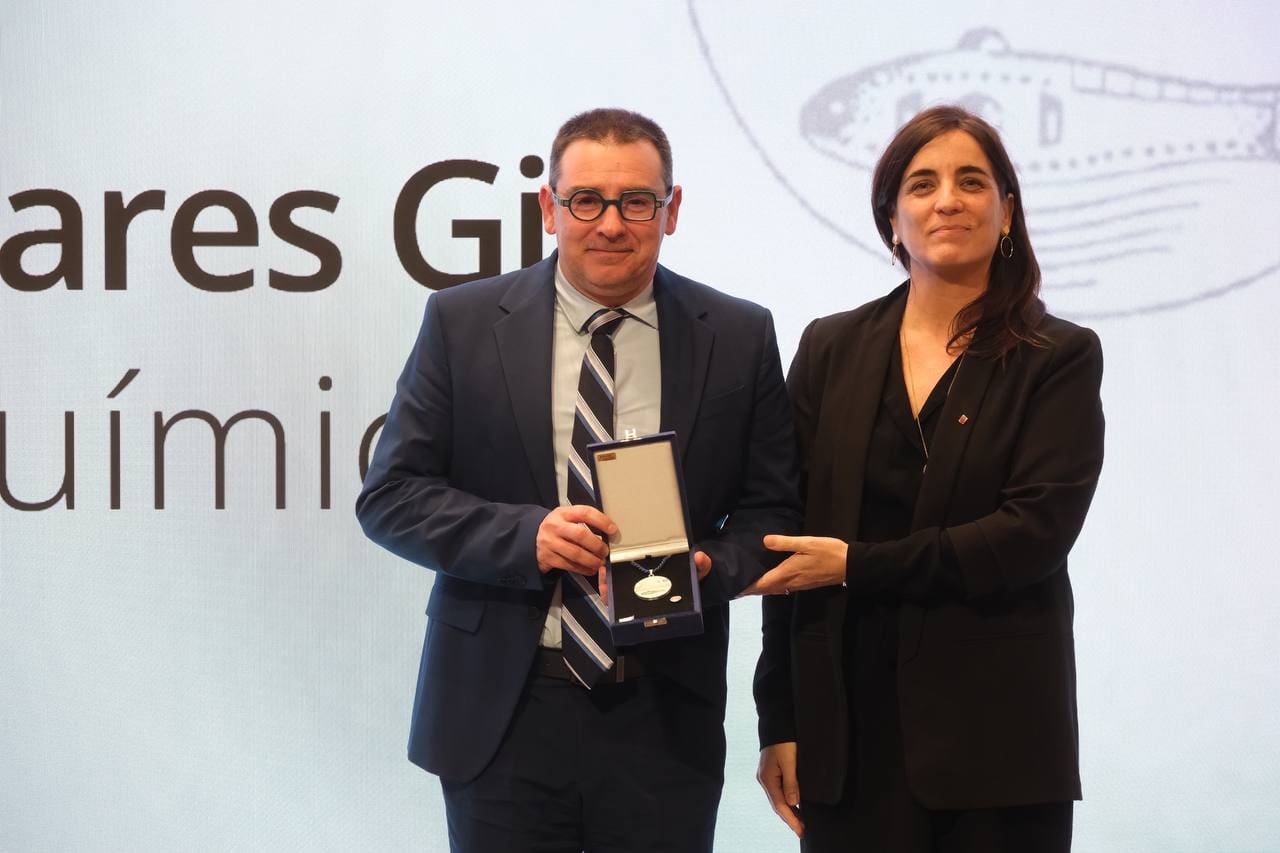
 17-02-2025
17-02-2025 